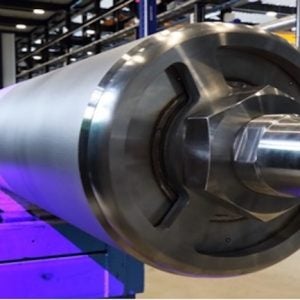 Vietnam’s National Assembly Economic Committee has proposed that the Government should remain committed to plans for two NPPs in the central province of Ninh Thuan instead of scrapping the project for the sake of its future development potential. The proposal was included in its report to the plenary session of the ongoing third session of the 15th National Assembly, with regards to the implementation of a 2016 resolution on the halting investment the first planned nuclear project for 2016-21.
Vietnam’s National Assembly Economic Committee has proposed that the Government should remain committed to plans for two NPPs in the central province of Ninh Thuan instead of scrapping the project for the sake of its future development potential. The proposal was included in its report to the plenary session of the ongoing third session of the 15th National Assembly, with regards to the implementation of a 2016 resolution on the halting investment the first planned nuclear project for 2016-21.
By November 2016, nearly VND2,000 billion ($86m) had been spent on seven components of the projects, including research and study for planning, ground clearance and relocation, constructions of some buildings, as well as sending Vietnamese engineers to Russia for training.
The committee noted that while the project has been halted, there are still planning issues related to compensating local people who had to relocate. Many who had lands within the allocated zone for the nuclear plant said their rights to use the land had been severely restricted while the project is in limbo.
The economic committee stressed that nuclear power should be a serious consideration in Vietnam’s power development planning, to realise the country’s recent commitment to achieving net zero emissions by 2050 at 2021 United Nations Climate Change Conference (COP26), and to ensure national energy security and development of an independent, self-reliant, with diversified power sources.
The committee further pointed out that Vietnam had signed many agreements and international commitments for the development of nuclear energy and usage of nuclear power for peaceful purposes – especially with Russia and Japan who had agreed to fund the construction and operations of the power plants in Ninh Thuan, as well as to provide training for Vietnamese specialists.
The selection and the integration of the nuclear project into local and national-level planning was a meticulous, time-consuming, costly, but standards-compliant endeavour that had received the approval of the local authorities and local populations, the economic committee noted.
The project has not been suspended for long, and cancelling the project would seriously affect the potential for future nuclear development as well as result in adverse ramifications in cooperation relations with partner countries.
The committee urged the Government to consider keeping the sites designated for the two power plants in its planning until further policy orientations for nuclear power development crystallise. It urged the Communist Party of Vietnam and relevant bodies to issue policy orientations on nuclear development as a basis for deciding the appropriate timing for the restarting of the Ninh Thuan nuclear electricity project.
The project for two power plants in Ninh Thuan with total capacity of 4000MWe was approved by National Assembly in 2009, and suspended in 2016 for economic reasons were economic. However, the Government and the Ministry of Industry and Trade have not yet decided to terminate project or to convert the allocated land for other purposes.
Minister of Industry and Trade Nguyen Hong Dien recently stressed that the National Assembly had only voted on the cancellation of the project, not its termination. The ministry, partners and related sectors have carefully studied and confirmed that Ninh Thuận is the most suitable location for nuclear power development, he added.
He told the National Assembly that developing nuclear power “is an ongoing inevitable trend in the world. Dien has pledged Vietnam will boost development of renewable energy following a commitment made in November last year to become carbon neutral by 2050, but stressed that it still needed a "stable energy source." He noted: "We can't develop more coal-fired power plants, and the country's hydropower potential has been fully tapped."
Image: An artists' impression of the Ninh Thuan nuclear power plant project (Credit: EVN – https://en.evn.com.vn)






